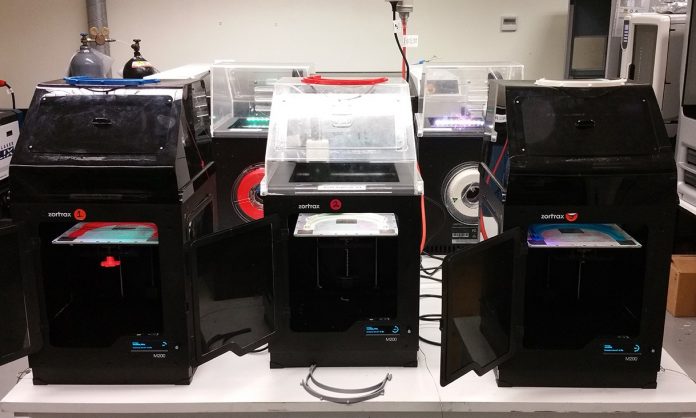
Swinburne University engineers worked with not-for-profit organization Able Australia to produce 3D-printed headbands that lower the risk of COVID-19 transmission among workers in the disability sector.
The headbands have fixing points to which plastic page protectors can be attached to form a simple but effective and low-cost face shield.
Able Australia’s CEO Kate MacRae, who came up with the initial headband design together with her husband Richard, says the chronic shortage of personal protective equipment through the community prompted her to push forward with the idea to develop a low-cost face shields that could be worn by disability support workers.
“When the first wave of the pandemic hit in March, personal protective equipment (PPE) was in short supply. While the health and aged care sector were given access to the government’s PPE stockpile, the disability sector was excluded. We knew we needed to come up with our own solution,” Ms MacRae says.
“Able Australia, and other disability support providers like us support a significant number of people who fall in the ‘high-risk’ category for COVID-19. Social distancing at all times when supporting someone with a complex disability is virtually impossible. For the safety and wellbeing of our clients and staff we needed PPE and we needed it urgently.”
Ms MacRae and her husband needed help to hone their design and produce a large number, so they contacted Dr Kwong Ming Tse, a researcher in Swinburne’s Department of Mechanical and Product Design Engineering.
Dr Tse took the lead in developing the design and worked with technical staff to complete the products.
“After two weeks of initial trials of the face shield prototype, we were able to advance the face shield design to a far more comfortable, user-friendly and safer design, with a shorter printing time,” says Dr Tse.
The new design was tried and approved by Waverley Industries, a not-for-profit organisation that provides employment for people with special needs.
The Swinburne team subsequently mass-printed 1100 of the face shields, dubbed ‘Swin Shields’, which were then delivered to Waverley Industries.
“We thank Professor Lu, Dr Tse and the team from Swinburne for their technical genius in helping us to protect those we support in a safe and affordable manner,” says Vanessa Steele, Group Finance and Corporate Services Manager at Waverley Industries.



















